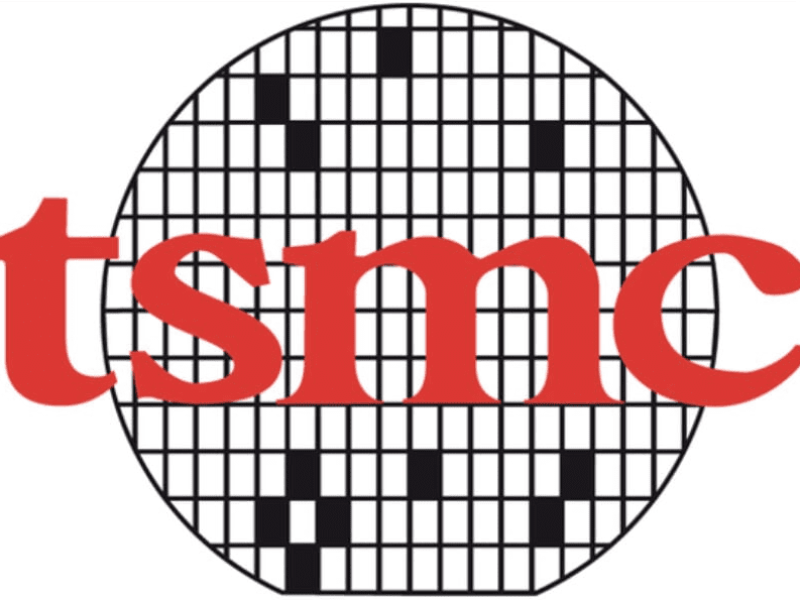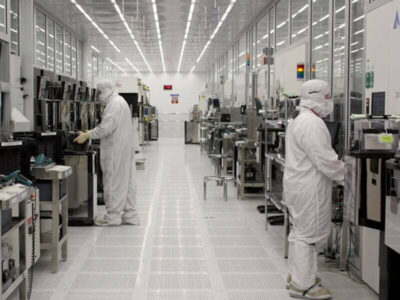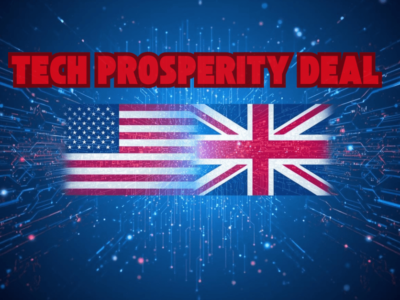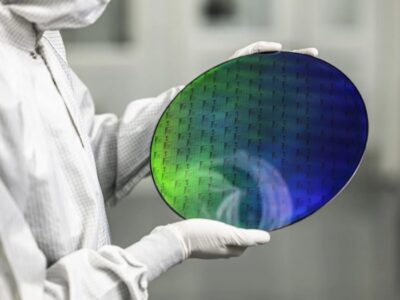
TSMC gets tough, warns US over chip import tariffs
 Cette publication existe aussi en Français
Cette publication existe aussi en Français
Taiwanese foundry chip maker TSMC has warned the administration of President Trump that if the US imposes import tariffs on chips, or does not provide an exemption to them, it may have to rethink its plan to build six wafer fabs in Arizona.
The warning came in the form of a letter to the US Department of Commerce. This was submitted after the DoC asked for comments on the potential of applying tariffs on foreign-made chips to encourage domestic chip manufacturing. President Trump has previously said that US chip tariffs would start “very soon” and could be 25, 50 or 100 percent.
TSMC’s letter spoke of the uncertainty of timelines and of undermining the financial ability for the foundry to execute on its ambitious Arizona project.
It also said that to remove uncertainty and allow investments such as TSMC Arizona to go ahead, the administration should exempt TSMC Arizona and other companies that have already committed to semiconductor manufacturing projects in the United States from tariffs or other import restrictions.
The period of invited public comment has now closed and an announcement on chip tariffs is expected soon, perhaps in late May or June.
TSMC couched its invited comment politely but pulled no punches in telling the US administration that the imposition of import tariffs on chips could harm markets generally and reduce demand for the chips it has started producing at its first Arizona fab, which began operations in 2024. A second fab is under construction there, with a third planned.
The comment comes a couple of months after CC Wei, the chairman and CEO of TSMC stood alongside President Trump in the White House and pledged to spend an additional US$100 billion on top of US$65 billion already planned. The enlarged total would be used to bring the target to six wafer fabs, two advanced packaging plants and an R&D center.
TSMC, Trump announce an extra US$100 billion capex in the US
In the letter to the DoC T.C. Morris Cheng, Secretary of TSMC Arizona Corp., laid the Arizona project out and emphasized that as well as bringing commercial-scale advanced chip manufacturing to the US, TSMC has a primary role in re-skilling the US in making semiconductors at the leading edge.
He added that many US customers’ products require not only near-to-leading edge chips that TSMC can make in the US but also many chips made on mature technologies that come from overseas.
“Additional tariffs or other restrictive measures on semiconductors could reduce the profitability of leading US companies by limiting sourcing options, driving up production costs, and reducing product demand. This, in turn, would affect their ability to fund future R&D, which is essential for sustaining or advancing their market and technology leadership,” wrote Cheng.
Cheng followed up with a second punch: “Lower market demand for our leading US customers’ products may consequently reduce demand for TSMC’s manufacturing capacity and service onshore. As referenced above, our expansion plans in Arizona are to support our US customers’ demand. Diminished demand could create uncertainty around the timeline for the construction and operation of our Arizona fabs. It could also undermine TSMC’s financial capacity to timely execute its ambitious Arizona project.”
Cheng concluded: Therefore, we respectfully request that the administration avoids imposing tariffs or other restrictive measures on semiconductors made outside of the United States.”
In short TSMC is telling the Trump administration:
- US import tariffs on chips are a bad idea and will hurt US headquartered electronics companies
- Such tariffs will reduce demand not only for chips made outside the US but also for those that are being made in the US. This will impede the market.
- In the absence of sufficient domestic demand TSMC will not build wafer fabs in the US.
- If TSMC does not build those wafer fabs and other facilities, the US will not onshore the strategic capability to make chips at the leading edge.
- At the very least the administration should give TSMC a pass on chip tariffs.
The letter is all very respectful and couched in terms of “could” and “may” but the message is clear.
Related links and articles:
TSMC’s letter to Department of Commerce is here
News articles:
President Trump says chip tariffs to start ‘very soon’
TSMC, Trump announce an extra US$100 billion capex in the US
 If you enjoyed this article, you will like the following ones: don't miss them by subscribing to :
eeNews on Google News
If you enjoyed this article, you will like the following ones: don't miss them by subscribing to :
eeNews on Google News






